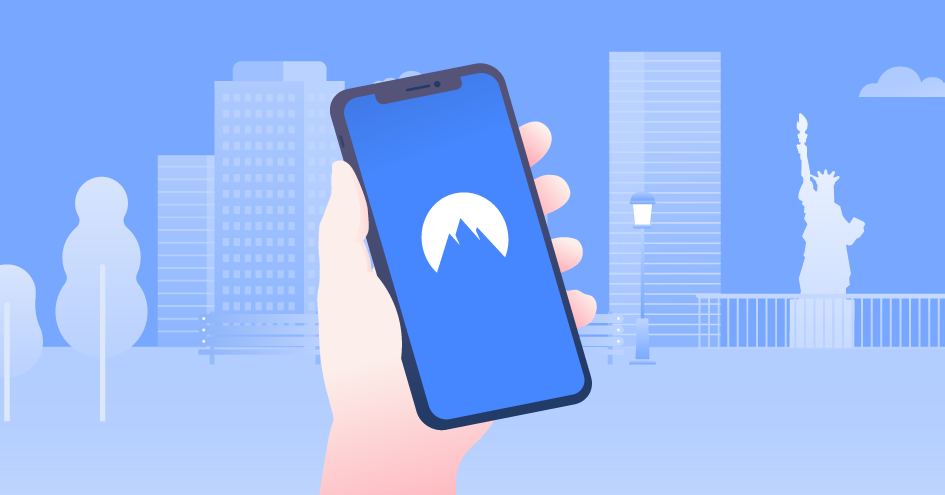The global surge in cybersecurity risks has galvanized the public into taking care of their online privacy. The natural response to this threat escalation was the creation of Virtual Private Networks, or VPNs. Just how secure is a VPN? And how exactly does a VPN keep you safe?
How does a VPN protect you?
So what is a VPN? Briefly, a VPN is a service that creates an encrypted tunnel that encapsulates all your online traffic. That tunnel connects two points. When your data enters the tunnel, it’s encrypted and will look like a strand of gibberish to anyone trying to spy on it.
Once it reaches the other end of the tunnel and the final destination, that data is decrypted and can then be acted on. A VPN encrypts all data, from private messages to specific website commands — no one viewing your network traffic will be able to see what you’re doing.
A VPN can also hide your IP address from the websites you visit — or rather, it can give you a new, temporary IP address. Let's say you're in Australia, browsing online. You want to view an American news publication, but it's blocked to international readers. No problem: you just connect to a VPN server in the US, and in seconds you're browsing with an American IP address.
What factors create a safe VPN?
The key to this protection is in the encryption protocol. NordVPN mainly utilizes OpenVPN. It’s reinforced with one of the most secure VPN ciphers available: AES-256. The 256 refers to the number of combinations a hacker would have to try to decrypt the cipher, specifically 2^256. Put into perspective, the number of possible key combinations is higher than the amount of atoms in the known universe. To break through this encryption in a reasonable amount of time would take technology that doesn’t exist yet.
NordVPN also uses the IKEv2/IPsec protocol combination to reinforce security for their users. Together, they provide a good selection of features that benefit the user experience.
- Lightning-fast. These protocols specialize in high-speed data transfer. Anytime you connect to the internet with a VPN, your speed will hardly be touched thanks to IKEv2 and IPsec.
- Versatility. IKEv2/IPsec are incredibly versatile protocols. They’re compatible with most mobile devices, providing better protection when you have to rely on public Wi-Fi.
- Stability. If you find yourself having to frequently switch between internet connections, or your connection is shoddy, IKEv2/IPsec will keep you safe. Your protective shield will stay up while hopping between connections.
Using these protocols in tandem with OpenVPN creates a versatile, stable and secure VPN.
Instead of relying on a brute force attack to break through to your account, many hackers will try a more subtle approach. Some criminals exploit user errors, or will take advantage of a fault or bug in the victim’s system. Luckily, OpenVPN is open source software. It’s constantly patched and updated to fix any potential security loopholes or bugs. OpenVPN is always adapting to be an incredibly effective security protocol.
One of the most important features a VPN must have is a Kill Switch. In the improbable event of your VPN being compromised, or if your connection to your VPN is disrupted, NordVPN’s built-in Kill Switch will keep you safe. Once a fault in the connection is detected, your device’s link to the internet is instantly severed.
So it’s all well and good explaining how well protected your data is online, but when would a VPN specifically be handy in your life?
Here’s how a VPN can help you
Here are some examples of how having a VPN at your disposal would be an advantage for your security.
When using public Wi-Fi.
Restaurants, cafes, libraries — any place where there's a high volume of people connecting to public Wi-Fi will be a hotspot for hacker activity. Hackers will use the lax security of a public Wi-Fi to inject spyware into a victim’s device and steal any important credentials. Connecting to a VPN server before you join the free Wi-Fi will keep you wrapped up in an encrypted bubble. Any criminals looking to work through the lax security of public Wi-Fi will find you impossible to read.
If you need to use file-sharing services.
Your Internet Service Provider will throttle most connections if they’re detected using any file-sharing software. The unfortunate reality is that most ISPs will always assume you’re pirating. With a VPN, however, your activity is hidden from everyone. Even if your ISP has planted a super cookie deep within your network, routing your traffic through a VPN will circumvent the tracking software.
You’re conscious of your privacy.
It’s not a bad thing to be wary of all forms of digital tracking. Governments, corporations, and a plethora of other third-parties want your data. When you connect to a secure VPN server, your IP address can’t be traced back to you. Instead, anyone trying to look will be directed to the IP address of the server. Your physical location is hidden.
Why choose NordVPN?
NordVPN is the top-tier of VPN security, the additional CyberSec feature opens up new avenues of protection. This feature has a continuously updated blacklist of malware ridden sites — you’ll be stopped and blocked from entering any treacherous locations online. NordVPN’s CyberSec will also prevent your device from being hijacked by a bot. As soon as it detects any attempt at communication between malware in your device and the controlling server, the connection is cut.
With over 5000 servers in 50+ countries, NordVPN arguably has the best coverage of any other VPN service available. Combining next-gen encryption with a selection of other supplementary security features makes NordVPN the best choice for those who care most about their security.
Super-charge online security with premium VPN encryption.


